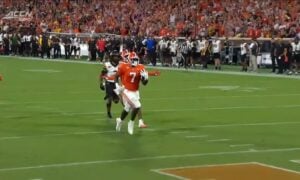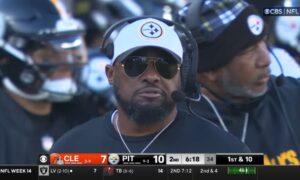Mike Tomlin became the youngest head coach in the NFL in 2007 when the Pittsburgh Steelers hired him. A year later, he became the youngest head coach to win the Super Bowl—a record that still stands. But it wasn’t an easy road to get there, even with the roster he inherited, says former lineman Trai Essex. He had to win over that veteran locker room first, and it was a process that took time.
“There was definitely a learning curve”, Essex said of Tomlin on 93.7 The Fan on Friday. He came into a veteran-laden team. We had guys who were one year removed from a Super Bowl. We went 8-8 in Coach [Bill] Cowher’s last year, and we still had a lot of the same cats on the team that went, and we were ready to go back to the show. So Coach [Mike] Tomlin had to come in and mark his own territory because we were still very much a Cowher team and weren’t ready necessarily for Coach Cowher to leave”.
Cowher retired after the 2006 season just a year removed from winning the Super Bowl. He left behind a young franchise quarterback in Ben Roethlisberger but also a well-run locker room that policed itself. They had a certain way of doing things, many of them never knowing another head coach in the NFL. They weren’t looking to learn a new way from some young punk who doesn’t know the Steelers Way.
Tomlin had to “do his own thing his way, and it rubbed a lot of people the wrong way initially”, Essex said, noting his notoriously grueling first training camp. “He came in very hard, and I think he had to do that because he had to be Coach Tomlin. He couldn’t come in and be Coach Cowher 2.0. Because of that, he rubbed guys [the wrong way]”.
He brought up Alan Faneca, although much of his issues were not with Mike Tomlin but with management. At the time, he felt the front office was not being fair with him going into the final year of his contract. He asked for a trade and skipped mandatory minicamp practices. Even back then, how Tomlin handled Faneca’s situation impressed onlookers, including some of those old veterans.
“I think it worked in the long run, and he learned from his mistakes”, Essex said of Tomlin’s growing pains as a young head coach in Pittsburgh. “That training camp was brutal that first year, but he laid off his second year and started to really get into the program of realizing what it means to be a Steelers head coach. He started listening to the veterans a little bit more, and that’s why we had success early in his tenure”.
As already mentioned, the Steelers—without Faneca—went on to win the Super Bowl the following season. Faneca eventually served as a coaching intern under him years later. Of course, Tomlin hasn’t led them to another Super Bowl win, a full 15 seasons since. But as Steelers fans forget all too often, it’s never easy to win one. For most, it’s a once-in-a-lifetime achievement at best. But Pittsburgh demands the best, as it has for the past 65 years or so.








